Filter by
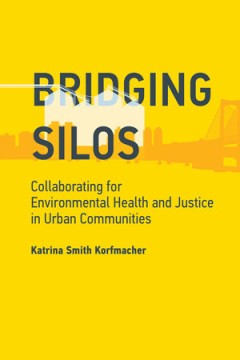
Bridging the silos :collaborating for environment, health, and justice in urb…
OCLC-licensed vendor bibliographic record.
- Edition
- -
- ISBN/ISSN
- 9780262354981
- Collation
- 1 online resource (376 pages) :illustrations.
- Series Title
- -
- Call Number
- -

Systems, Experts, and Computers: The Systems Approach in Management and Engin…
This study charts the origins and spread of the systems movement. It describes the major players - including RAND, MITRE, Ramo-Wooldrige (later TRW), and the International Institute of Applied Systems Analysis - and examines applications in a wide variety of military, government, civil, and engineering settings. The book is international in scope, describing the spread of systems thinking in Fr…
- Edition
- -
- ISBN/ISSN
- 9780262275873
- Collation
- 1 online resource (vi, 513 pages) :illustrations.
- Series Title
- -
- Call Number
- -
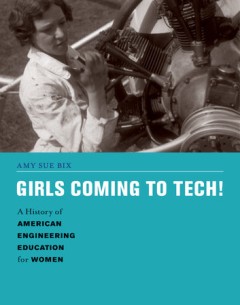
Girls coming to tech! :a history of American engineering education for women
"Engineering education in the United States was long regarded as masculine territory. For decades, women who studied or worked in engineering were popularly perceived as oddities, outcasts, unfeminine (or inappropriately feminine in a male world). In Girls Coming to Tech!, Amy Bix tells the story of how women gained entrance to the traditionally male field of engineering in American higher educ…
- Edition
- -
- ISBN/ISSN
- 9781461957249
- Collation
- 1 online resource (xii, 360 pages) :illustrations.
- Series Title
- -
- Call Number
- -
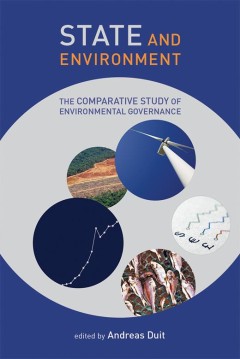
State and environment :the comparative study of environmental governance
This volume of comparative studies documents the continuing relevance of the state in environmental politics and policy. The book also demonstrates the analytical power of the comparative approach to the study of environmental politics and policy, offering cross-national comparisons of environmental governance in both developed and developing countries. Some chapters are based on qualitative st…
- Edition
- -
- ISBN/ISSN
- 9780262323871
- Collation
- 1 online resource :illustrations.
- Series Title
- -
- Call Number
- -
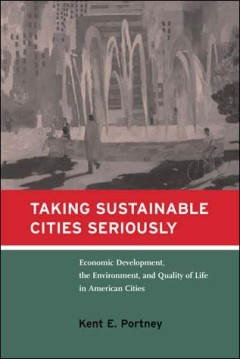
Taking Sustainable Cities Seriously: Economic Development, the Environment, a…
Today at least twenty-five major U.S. cities have pursued some form of sustainability initiative. Although many case studies and "how-to" manuals have been published, there has been little systematic comparison of these cities' programs and initiatives. In this book Kent Portney lays the theoretical groundwork for research on what works and what does not, and why. Distinguishing cities on the b…
- Edition
- -
- ISBN/ISSN
- 9780262281799
- Collation
- 1 online resource (xiv, 284 pages).
- Series Title
- -
- Call Number
- -

Computational Developmental Psychology
"A Bradford book."An overview of the emerging discipline of computational developmental psychology, emphasizing the use of constructivist neural networks.Despite decades of scientific research, the core issues of child development remain too complex to be explained by traditional verbal theories. These issues include structure and transition, representation and processing, innate and experienti…
- Edition
- -
- ISBN/ISSN
- 9780262303033
- Collation
- 1 online resource (338 pages)
- Series Title
- -
- Call Number
- -

Understanding Knowledge as a Commons: From Theory to Practice
Includes index.Looking at knowledge as a shared resource: experts discuss how to define, protect, and build the knowledge commons in the digital age."Knowledge in digital form offers unprecedented access to information through the Internet but at the same time is subject to ever-greater restrictions through intellectual property legislation, overpatenting, licensing, overpricing, and lack of pr…
- Edition
- -
- ISBN/ISSN
- 9780262256346
- Collation
- 1 online resource (xiii, 367 pages) :illustrations
- Series Title
- -
- Call Number
- -
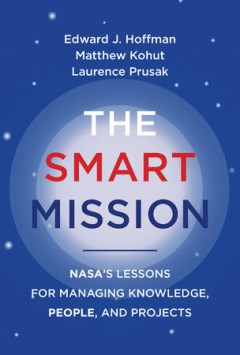
The smart mission :NASA's lessons for managing knowledge, people, and projects
"How NASA developed innovative strategies for managing knowledge and learning, and how other organizations can learn from NASA's success"--OCLC-licensed vendor bibliographic record.
- Edition
- -
- ISBN/ISSN
- 9780262369558
- Collation
- 1 online resource (1 volume)
- Series Title
- -
- Call Number
- -
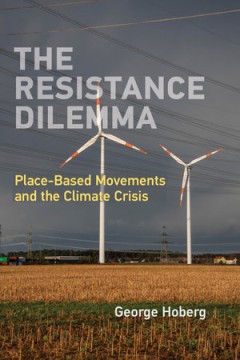
The resistance dilemma :place-based movements and the climate crisis
"The book focuses on a strategic choice by the North American wing of the global climate movement: to ally themselves with place-based interests, including Indigenous groups, to block new coal plants, coal port expansion, fracking, and more recently, oil sands pipelines. The strategy by climate activists to target fossil fuel infrastructure has been effective at movement building and driving po…
- Edition
- -
- ISBN/ISSN
- 9780262367158
- Collation
- 1 online resource.
- Series Title
- -
- Call Number
- -

Mnemonic ecologies :memory and nature conservation along the former iron curtain
"Examination of the relationships among conservation, restoration, novel ecosystems, collective trauma, and memorialization as illustrated by the Green Belt between the former East and West Germanies"--OCLC-licensed vendor bibliographic record.
- Edition
- -
- ISBN/ISSN
- 9780262375245
- Collation
- 1 online resource.
- Series Title
- -
- Call Number
- -
 Computer Science, Information & General Works
Computer Science, Information & General Works  Philosophy & Psychology
Philosophy & Psychology  Religion
Religion  Social Sciences
Social Sciences  Language
Language  Pure Science
Pure Science  Applied Sciences
Applied Sciences  Art & Recreation
Art & Recreation  Literature
Literature  History & Geography
History & Geography